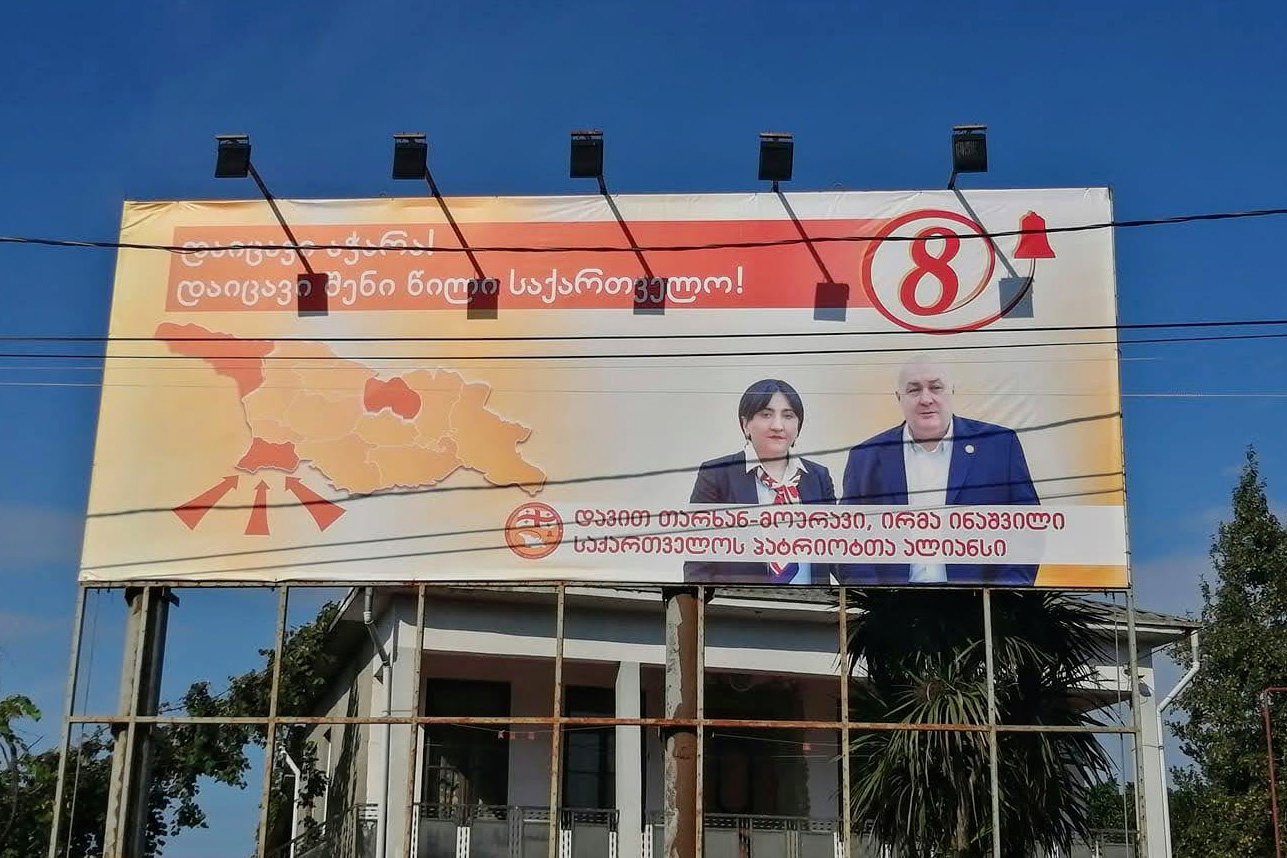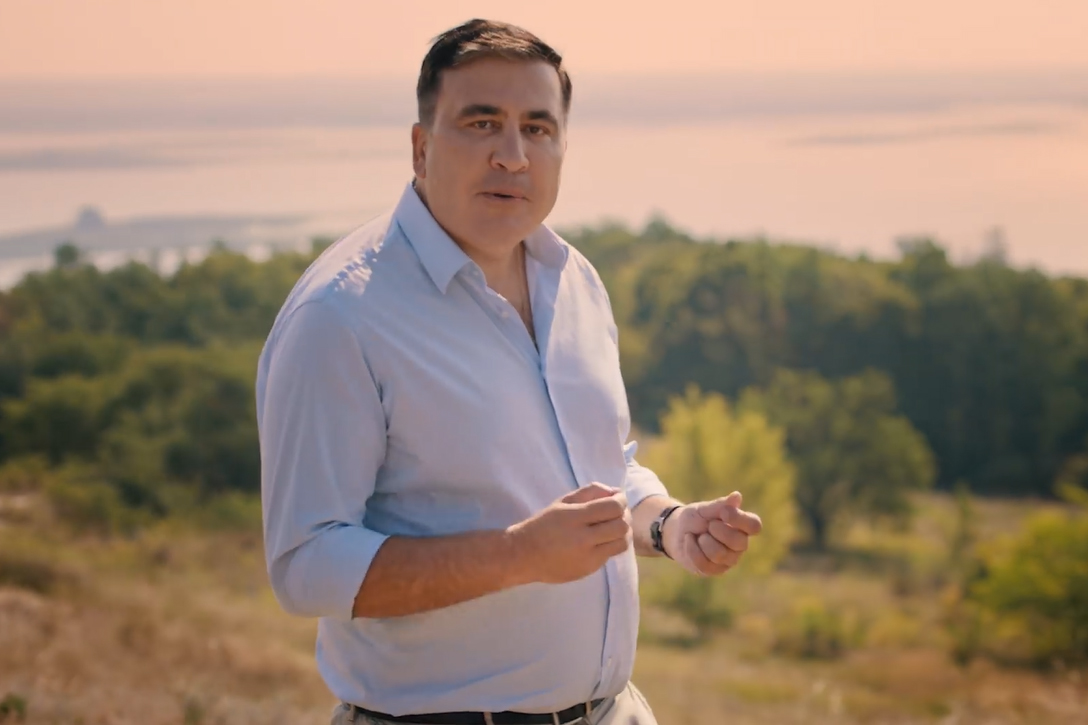Election campaign officially kicks off in Georgia as poll date set for 31 October

The campaign for parliamentary elections is set to officially begin in Georgia after President Salome Zurabishvili named 31 October as the election date.
The elections could see the most serious challenge to the ruling Georgian Dream party since they came to power in 2012, as recently passed electoral reforms will make the composition of parliament more proportional to the votes cast.
The reforms passed in late June mean the tenth convocation of the Georgian Parliament will include only 30 MPs elected from single-member majoritarian constituencies, down from 73. The inclusion of more proportionally elected MPs in the country’s 150-seat parliament and the lowering of the electoral threshold for parties to gain seats will make it easier for smaller parties to enter parliament.
Despite substantial anti-coronavirus curbs still in place in the country, the authorities have yet to unveil specific safety regulations and guidelines related to campaigning, casting of ballots, election observation, or vote-counting procedures.
On Sunday, Parliamentary Speaker Archil Talakvadze, who recently vowed Georgia would ensure that international observers would be present in the country, self-isolated after his security detail tested positive for COVID-19.
Monday’s announcement by the president sets in motion restrictions on the government against using state apparatus for campaign purposes.
The election campaign had already raised several controversies, including accusations of xenophobia levelled against the Alliance of Patriots Party and a vow from former president Mikheil Saakashvili to return to the country.
Alliance of Patriots face backlash over Adjara election billboard
The opposition Alliance of Patriots Party, currently one of four parties with seats in parliament, faced condemnation last week from both Georgian Dream and several liberal opposition parties over billboards erected in the Autonomous Republic of Adjara.
The billboards set up near the Turkish border and in the regional capital, Batumi, displayed Adjara in red — along with Abkhazia and South Ossetia.

The Head of Adjara’s government, Tornike Rizhvadze, called the banner ‘absolutely unacceptable’ while the opposition Strategy Aghmashenebeli Party demanded it be investigated.
Supporters of other opposition groups accused the Alliance of Patriots of stoking separatism and waging an anti-Turkey campaign in the region.
The Lelo Party went as far as calling on the government to appeal to the Constitutional Court to recognise the party’s activities as unconstitutional and disqualify them from the elections.
On 31 October, Adjara will also hold elections for its legislative body, the Supreme Council.
The Alliance of Patriots initially defended the billboards as a warning against ‘Turkey’s economic and ideological expansion’ in the region.
Later, party leader Irma Inashvili suggested that the United National Movement Party (UNM) may have sabotaged the poster with an ‘altered design’. She provided no evidence to support this claim.
Despite being in opposition, the Alliance of Patriots have been fierce critics of the UNM, who led the country from 2004–2012.
The party, which has campaigned against Georgia’s potential NATO membership, has frequently been accused by critics of being ‘pro-Russian’.
On 24 August, Dosie, an investigative platform supported by former Russian oligarch turned Putin critic Mikhail Khodorkovsky, claimed to have obtained documents confirming ties between the Alliance of Patriots and the Russian government.
According to Dosie, the party has hired Politsecrets, a consultancy firm close to Russian security officials, to run an $8.5 million election campaign.
Saakashvili vows to return to Georgia
On 27 August, Georgia’s third President Mikheil Saakashvili, who currently chairs Executive Committee of Ukraine’s National Reform Council, appealed to Georgians in a video on Facebook. During the video, Saakashvili apologised for past ‘mistakes’ without specifying what they were, while vowing to return to the country.

Saakashvili has been convicted in absentia in Georgia on several counts of abuse of power after his term as president expired and he departed the country in late 2013.
His appeal strengthened public expectations that the UNM may name Saakashvili as their prime-ministerial candidate.
Giorgi Vashadze, a former UNM member who currently leads the Strategy Aghmashenebeli Party, has so far been the only person to announce himself as a prime ministerial candidate.
Vashadze’s party and the European Georgia Party recently accused the UNM of dishonouring an agreement not to challenge each other in majoritarian constituencies in the capital Tbilisi. On 26 August, Khatia Dekanoidze, a UNM member and close ally of Saakashvili, announced she would run in Isani District, where Vashadze was the only agreed opposition candidate.
A party would need to win a majority of MPs in 31 October’s election to be able to nominate a prime-ministerial candidate for parliament to confirm.
Recent opinion polling has suggested that no opposition party is likely to secure a majority alone.
Opposition groups agree on institutional reforms
On Monday, libertarian party Girchi announced that they and several other leading opposition parties had agreed to support a set of reforms if elected.
According to them, these included ‘decentralising’ the police, dismantling the State Security Service, forming a standalone anti-corruption agency, something touted by several Georgian watchdog groups.
They also named several economically liberal policies, including freeing private education from state regulations, limiting government spending to 20% of GDP.
Other parties to have signed up include the UNM, European Georgia, Strategy Aghmashenebeli, Nino Burjanadze’s Democratic Movement, Lelo, and Aleko Elisashvili’s Citizens Party.
The same day, Sergi Kapanadze, an MP from European Georgia, added that they were also advocating for introducing jury trials and inviting American judges to trials where there was a danger of government pressure.







